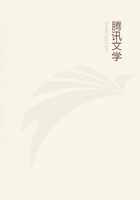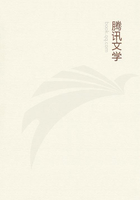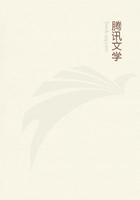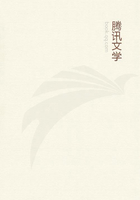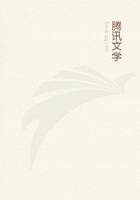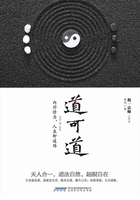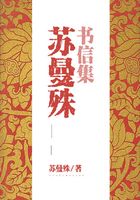SOCRATES: How would you have me begin? Shall I take first of all him whom you mentioned first--the sun?
HERMOGENES: Very good.
SOCRATES: The origin of the sun will probably be clearer in the Doric form, for the Dorians call him alios, and this name is given to him because when he rises he gathers (alizoi) men together or because he is always rolling in his course (aei eilein ion) about the earth; or from aiolein, of which the meaning is the same as poikillein (to variegate), because he variegates the productions of the earth.
HERMOGENES: But what is selene (the moon)?
SOCRATES: That name is rather unfortunate for Anaxagoras.
HERMOGENES: How so?
SOCRATES: The word seems to forestall his recent discovery, that the moon receives her light from the sun.
HERMOGENES: Why do you say so?
SOCRATES: The two words selas (brightness) and phos (light) have much the same meaning?
HERMOGENES: Yes.
SOCRATES: This light about the moon is always new (neon) and always old (enon), if the disciples of Anaxagoras say truly. For the sun in his revolution always adds new light, and there is the old light of the previous month.
HERMOGENES: Very true.
SOCRATES: The moon is not unfrequently called selanaia.
HERMOGENES: True.
SOCRATES: And as she has a light which is always old and always new (enon neon aei) she may very properly have the name selaenoneoaeia; and this when hammered into shape becomes selanaia.
HERMOGENES: A real dithyrambic sort of name that, Socrates. But what do you say of the month and the stars?
SOCRATES: Meis (month) is called from meiousthai (to lessen), because suffering diminution; the name of astra (stars) seems to be derived from astrape, which is an improvement on anastrope, signifying the upsetting of the eyes (anastrephein opa).
HERMOGENES: What do you say of pur (fire) and udor (water)?
SOCRATES: I am at a loss how to explain pur; either the muse of Euthyphro has deserted me, or there is some very great difficulty in the word.
Please, however, to note the contrivance which I adopt whenever I am in a difficulty of this sort.
HERMOGENES: What is it?
SOCRATES: I will tell you; but I should like to know first whether you can tell me what is the meaning of the pur?
HERMOGENES: Indeed I cannot.
SOCRATES: Shall I tell you what I suspect to be the true explanation of this and several other words?--My belief is that they are of foreign origin. For the Hellenes, especially those who were under the dominion of the barbarians, often borrowed from them.
HERMOGENES: What is the inference?
SOCRATES: Why, you know that any one who seeks to demonstrate the fitness of these names according to the Hellenic language, and not according to the language from which the words are derived, is rather likely to be at fault.
HERMOGENES: Yes, certainly.
SOCRATES: Well then, consider whether this pur is not foreign; for the word is not easily brought into relation with the Hellenic tongue, and the Phrygians may be observed to have the same word slightly changed, just as they have udor (water) and kunes (dogs), and many other words.
HERMOGENES: That is true.
SOCRATES: Any violent interpretations of the words should be avoided; for something to say about them may easily be found. And thus I get rid of pur and udor. Aer (air), Hermogenes, may be explained as the element which raises (airei) things from the earth, or as ever flowing (aei rei), or because the flux of the air is wind, and the poets call the winds 'air-blasts,' (aetai); he who uses the term may mean, so to speak, air-flux (aetorroun), in the sense of wind-flux (pneumatorroun); and because this moving wind may be expressed by either term he employs the word air (aer = aetes rheo). Aither (aether) I should interpret as aeitheer; this may be correctly said, because this element is always running in a flux about the air (aei thei peri tou aera reon). The meaning of the word ge (earth) comes out better when in the form of gaia, for the earth may be truly called 'mother' (gaia, genneteira), as in the language of Homer (Od.) gegaasi means gegennesthai.
HERMOGENES: Good.
SOCRATES: What shall we take next?
HERMOGENES: There are orai (the seasons), and the two names of the year, eniautos and etos.
SOCRATES: The orai should be spelt in the old Attic way, if you desire to know the probable truth about them; they are rightly called the orai because they divide (orizousin) the summers and winters and winds and the fruits of the earth. The words eniautos and etos appear to be the same,--'that which brings to light the plants and growths of the earth in their turn, and passes them in review within itself (en eauto exetazei)': this is broken up into two words, eniautos from en eauto, and etos from etazei, just as the original name of Zeus was divided into Zena and Dia; and the whole proposition means that his power of reviewing from within is one, but has two names, two words etos and eniautos being thus formed out of a single proposition.
HERMOGENES: Indeed, Socrates, you make surprising progress.
SOCRATES: I am run away with.
HERMOGENES: Very true.
SOCRATES: But am not yet at my utmost speed.
HERMOGENES: I should like very much to know, in the next place, how you would explain the virtues. What principle of correctness is there in those charming words--wisdom, understanding, justice, and the rest of them?
SOCRATES: That is a tremendous class of names which you are disinterring; still, as I have put on the lion's skin, I must not be faint of heart; and I suppose that I must consider the meaning of wisdom (phronesis) and understanding (sunesis), and judgment (gnome), and knowledge (episteme), and all those other charming words, as you call them?
HERMOGENES: Surely, we must not leave off until we find out their meaning.

